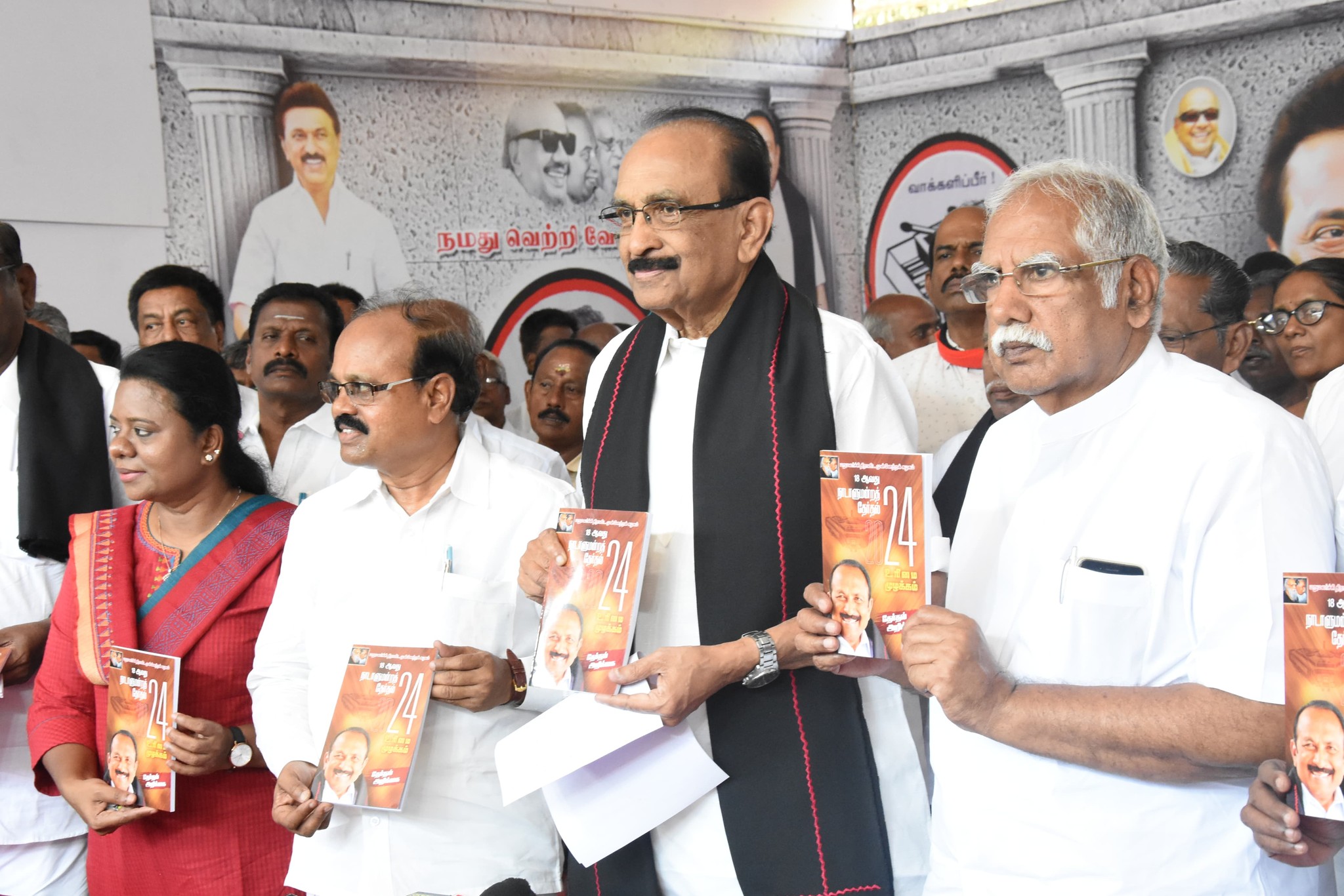
The Marumalarchi Dravida Munnetra Kazhagam (MDMK) has pledged to work on lifting the ban on the Liberation Tigers of Tamil Eelam (LTTE) and push for a referendum on establishing Tamil Eelam in its manifesto as elections in India are set to take place later this month.
The Hindu reported that the party general secretary Vaiko said the MDMK would urge the Union government to conduct a referendum among Tamils in the homeland and the global Tamil diaspora on establishing Tamil Eelam.
This is not the first time that the MDMK has made such a decision. In 2014, the MDMK outlined in their new manifesto, that they would lift the ban on the LTTE, should they be voted into power. Adding further issues relating to Eelam Tamils in the manifesto, the MDMK also pledged to work towards holding a referendum to create a state as a political solution for Tamils.
In 2014, the Indian Central Government's Tribunal case on the extension of the ban on the LTTE reserved orders in the case, after hearing counsels for the Central and Tamil Nadu governments and Vaiko, who testified for the LTTE.
In his submission to the Central government Tribunal Vaiko said: “Under the Prevention of Terrorism Act, a two-year, extendable ban was imposed on the LTTE in 1992. Subsequently, every two years, the ban had been extended. This year, under the same Act, a five-year ban has been imposed.
He further stated that when the British left the country in 1948, they handed it over to the Sinhala nation and the sovereignty of the Tamils was disregarded.
“Under the leadership of the Gandhi of Eelam, SJV Chelvanayakam, the Tamils struggled in a non-violent manner. But in return, they got baton charges and bullets.Their women were raped. Tamils seeking justice were killed. Because of these, the Tamils concluded that they could not live with the Sinhalese. The Tamils rallied under the leadership of Thanthai (Father) Chevanayakam and passed a resolution at Vadukkoddai on May 14, 1976, seeking an independent Tamil Eelam. This is not a movement to divide a country. It is a movement of the Tamils to regain their lost sovereignty."
